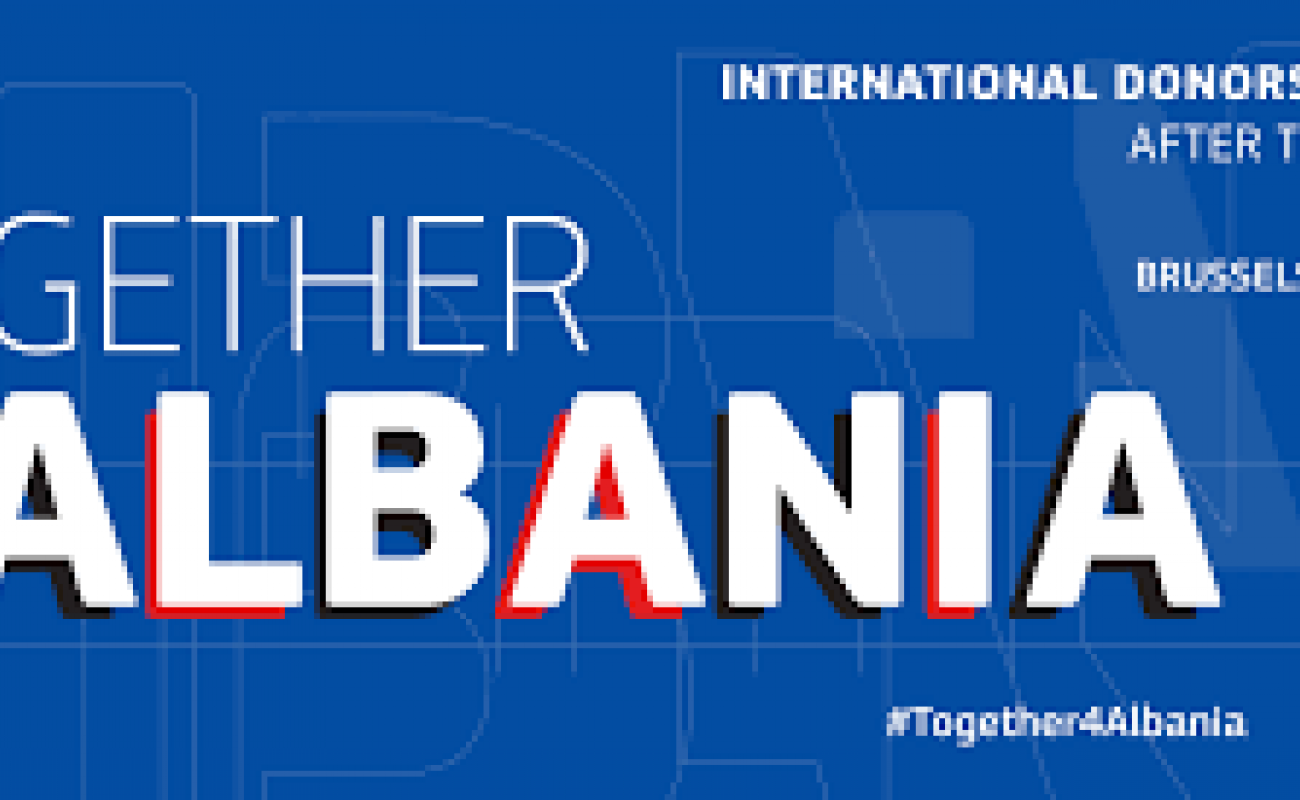#Together4Albania - Two years after the Donors’ Conference on post-earthquake rehabilitation, new schools and revitalised cultural heritage sites open their doors to the public

On 17 February 2020, shortly after the November 2019 earthquake, the International Donors’ Conference “Together for Albania” in Brussels paved the way for an unprecedented reconstruction effort led by the EU, aiming to rebuild hope for thousands of Albanians. Today Albania counts dozens of renovated schools with the highest EU standards and a series of revitalised cultural heritage sites. Our flagship EU4Schools and EU4Culture programmes, are rebuilding 63 schools and 27 cultural sites, having a massive impact on the country’s education system and its cultural heritage.
In the early hours of 26 November 2019, an earthquake of a 6.3 magnitude hit Albania causing 51 fatalities, about 1,000 injured, and 17,000 temporarily displaced across 11 municipalities. With more than a thousand aftershocks, the earthquake left entire cities paralysed heavily damaging homes, education institutions, public and private buildings. Right after the earthquake, the EU Civil Protection Team landed in Albania and for almost a month coordinated the immediate international response with search and rescue teams and structural engineers from the EU and its Member States.
In a matter of days, he EU teamed up with the World Bank and the United Nations, and led the preparations for a joint Post Disaster Needs Assessment (PDNA) working alongside with the Albanian authorities. The PDNA gave the credibility and confidence needed by donors to help Albania, and was the basis for the donors’ conference that took place in Brussels on 17 February 2020, raising a total of EUR 1.15 billion. Approximately, EUR 295 million were pledged in grants and EUR 853 million in loans.
The European Union, including the Commission, its Member States and the European Investment Bank, announced EUR 400 million for the reconstruction of Albania, out of the EUR 1.15 billion total pledged, exceeding all expectations. The European Commission pledged EUR 115 million from the EU budget to rapidly reconstruct and rehabilitate key public buildings and sites in Albania. Some EUR 180 million came from EU Member States and EUR 102.5 million were pledged by the European Investment Bank (EIB).
The EU pledge of EUR 115 million was channelled into two programmes: EU4Schools, implemented by UNDP, an investment of EUR 75 million for the reconstruction or rehabilitation of educational facilities and EU4Culture, implemented by UNOPS, an investment of EUR 40 million for the rehabilitation of cultural heritage sites.
EU4Schools
EU4Schools is implemented by UNDP and targets the reconstruction or rehabilitation of 63 Albanian educational facilities in all the 11 municipalities affected by the earthquake. EU4Schools benefits over 24,000 students and teachers and over one million citizens.
By February 2022 EU4Schools completed reconstruction or repairs in 21 school sites: 5 kindergartens, 6 schools, and 10 combined kindergarten and 9-year schools. In total, they provide better educational services to 7,148 children and students, and 435 teachers. The new schools include sports and medical facilities, and ICT laboratories proposing a modern way of learning.
By mid-2022, EU4Schools will complete 11 additional educational facilities. The vast majority of the remaining educational facilities to be repaired or reconstructed under EU4Schools will be handed over by the end of 2022.
EU4Schools’ approach to recovery of the educational sector is to #BuildBackBetter, with an integrated approach to education that ensures health and safety and quality in construction, accessibility, but also respect for the environment through energy efficiency. The recovery process is an opportunity to improving access to enhanced quality education through improved design of learning spaces, teacher development, and strengthening the capacity of education authorities at all levels.
EU4Schools also implements a #BuildBackTogether principle by forging partnership with families, the communities and local authorities to foster sustainability and ownership. EU4Schools has reached out to female teachers, parents and students as both stakeholders and end-users, building on the premise that women’s participation and leadership are key to the successful implementation of all infrastructural interventions. The programme consulted students, parents, teachers, and local governments representatives.
EU4Culture
The programme is implemented by UNOPS in close coordination and collaboration with the Ministry of Culture and other stakeholders, including at local level.
By February 2022 EU4Culture completed restoration and rehabilitation works in the St Mary Church in Rubik and the St Ndoj Church in Rodon. Works are ongoing on the National Museum of History’s Mosaic, the Ethnographic Museum in Kavaja, the Hammam and the Venetian tower in Durrës, the Kurcaj bridge, and the Ethnographic Museum in Kruja.
EU4Culture is currently procuring works for the rehabilitation of the National Puppet Theatre. It is also preparing designs for ten additional sites.
The EU4Culture Programme seeks to remediate the effect of the earthquake on Albania’s cultural heritage through the revitalization of earthquake-affected cultural heritage sites and monuments and their valorisation, thereby contributing to Albania’s socio-economic recovery through improving Albania’s potential for tourism. The contribution of the action to socio-economic development has become even more critical in light of the effects of the COVID-19 global pandemic, which has negatively impacted Albania’s tourism sector.
In addition to physical works, EU4Culture will also work on museum reconceptualization and artefact conservation, interpretation and digital presentation, management and disaster risk management plans as well as accessibility. It will also provide grants to help communities reconnect with the country’s cultural heritage sites.
